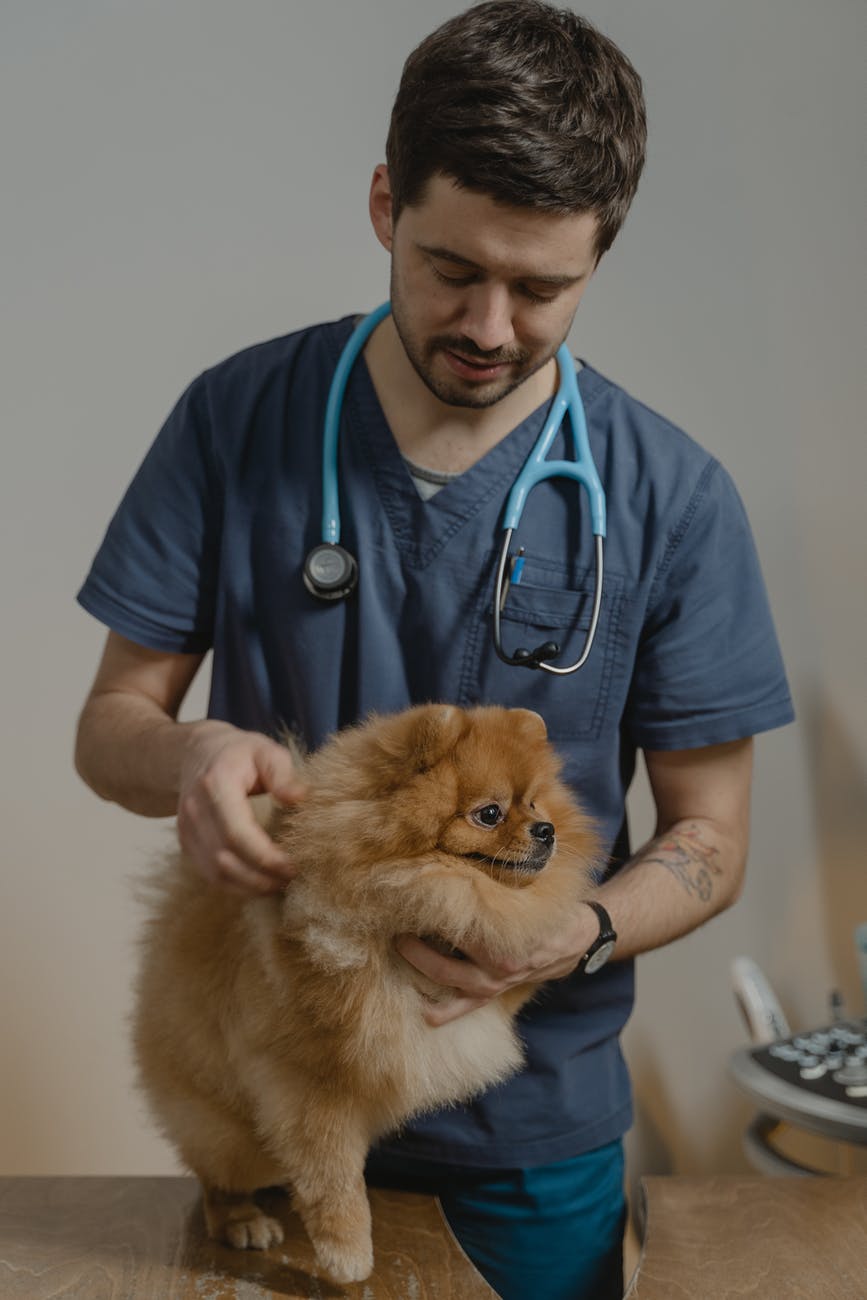FDA Issues Final Guidance on Animal Drug Compounding from Bulk Drug Substances

Agency Planning Outreach and Education Period as Part of Implementation
Today, the U.S. Food and Drug Administration issued a final guidance, entitled “Compounding Animal Drugs from Bulk Drug Substances,” that will help protect animal health by recognizing the need for access to certain compounded animal drugs. The guidance describes the agency’s approach to situations where veterinarians use unapproved compounded drugs to provide appropriate care for the medical needs of the diverse species they treat. The FDA recognizes that this final guidance covers a wide range of stakeholders and plans to focus on education and stakeholder engagement before shifting resources toward inspectional activities in Fiscal Year 2023. We will take appropriate actions, as we currently do, when compounding practices threaten human or animal health.
Animal drug compounding is the process of combining, mixing or altering ingredients to create a medication tailored to the needs of an individual animal or a small group of animals. Animal drug compounding using an FDA-approved drug as the starting point is already allowed under existing law and regulations. Animal drugs compounded from bulk drug substances are not FDA-approved and the agency has not evaluated them to ensure that they are safe, effective, properly manufactured to ensure consistent quality, and the labeling is complete and accurate.
“We are taking this step because we recognize the need for veterinarians to have access to compounded animal drugs that aren’t available as approved products and that would make a clinical difference in patient care,” said Steven M. Solomon, D.V.M., M.P.H., director of the FDA’s Center for Veterinary Medicine. “We believe this policy strikes the right balance between maintaining access to drugs veterinarians need to treat diverse animal populations, while ensuring human and animal health is protected from poorly-compounded products, or ones that attempt to copy existing FDA-approved drugs.”
There are more than 1,600 drugs that are FDA-approved, conditionally approved or indexed for use in animals, as well as approximately another 20,000 FDA-approved human drugs that could be prescribed for animal use. At the same time, there are many different species of animals, each with various diseases and conditions for which no suitable FDA-approved or indexed drugs are available for which access to compounded animal drugs may be necessary.
The FDA released this guidance in 2019 and received comments from veterinarians, pharmacy compounders and other stakeholders. In response, the agency has made significant changes to the final guidance to recognize flexibilities for veterinarians to access animal drugs compounded from bulk drug substances for those animals that need them.
The final guidance:
- Addresses compounding of unapproved animal drugs from bulk drug substances, which is the practice of preparing a medication without using an FDA-approved or indexed drug as the starting point.
- Outlines flexibilities for pharmacists and veterinarians who compound animal drugs from bulk drug substances for individual patients, as well as for those essential drugs needed for immediate or emergency use that they need to keep in their inventory (also known as “office stock”).
- Balances the need for accessing animal drugs compounded from bulk drug substances for the patients that need them, while also providing ways to better identify safety issues associated with compounded products.
- Describes the types of animal drugs compounded from bulk drug substances that the FDA believes pose the greatest risk to human and animal health. The agency will prioritize these products for enforcement action, as well as those made under poor compounding practices.
- Explains FDA’s policy on animal drugs compounded from bulk drug substances that are copies (same active ingredient and route of administration) of marketed FDA-approved or indexed drugs. The agency generally intends to prioritize these products for enforcement action when the compounding pharmacy has not recorded a medical rationale for prescribing a copy instead of an FDA-approved or indexed drug.
The FDA understands there may be many questions about the final guidance and has committed to a proactive outreach and education period for veterinarians and animal drug compounding pharmacies as part of implementation. During this period, the FDA will continue meeting with interested stakeholders to discuss the new guidance and address questions about content and implementation. The agency has also created a library of tools to help inform stakeholders on details of the policy. These tools include informational handouts for veterinarians and pharmacists as well as a webinar and graphic. Stakeholders with additional questions can contact the agency through AskCVM@fda.hhs.gov.
Related Information
- Animal Drug Compounding
- FDA Regulation of Animal Drugs
- Resources on Animal Drug Compounding from Bulk Drug Substances
- Q&A on Animal Drug Compounding from Bulk Drug Substances
- Medicines for your pet: What’s the difference between FDA-approved and pharmacy-compounded animal drugs
- Nominations for Bulk Drug Substances for Compounding
- Vet-Approved Tips to Help Keep Pets Safe this Summer
 (Family Features) Extreme temperatures and booming sounds can have big impacts on pets. With record-breaking heat across much of the nation, the experts at Freshpet are helping pet parents with these tips to help keep their pets healthy and safe this summer. HeatHeat stroke can occur quickly in dogs. Without the ability to sweat the… Read more: Vet-Approved Tips to Help Keep Pets Safe this Summer
(Family Features) Extreme temperatures and booming sounds can have big impacts on pets. With record-breaking heat across much of the nation, the experts at Freshpet are helping pet parents with these tips to help keep their pets healthy and safe this summer. HeatHeat stroke can occur quickly in dogs. Without the ability to sweat the… Read more: Vet-Approved Tips to Help Keep Pets Safe this Summer - Keep Pets Safe All Summer Long
 4 tips to overcome warm weather hazards 4 tips to overcome warm weather hazards (Family Features) Summer means extra time outdoors. Sunny months provide a perfect opportunity for bonding with pets, but higher temperatures, seasonal plants and pests and additional travel can pose higher risks for complications. To help keep dogs, cats and other pets… Read more: Keep Pets Safe All Summer Long
4 tips to overcome warm weather hazards 4 tips to overcome warm weather hazards (Family Features) Summer means extra time outdoors. Sunny months provide a perfect opportunity for bonding with pets, but higher temperatures, seasonal plants and pests and additional travel can pose higher risks for complications. To help keep dogs, cats and other pets… Read more: Keep Pets Safe All Summer Long - 5 Ways to Celebrate Your Dog
 (Family Features) The past 14 dog years (two human years) have been tough on nearly everyone but the unwavering support of essential companions – dogs – has helped make it a little bit easier. Pet parents owe a lot to their furry friends for always being there and helping them get through the hard times… Read more: 5 Ways to Celebrate Your Dog
(Family Features) The past 14 dog years (two human years) have been tough on nearly everyone but the unwavering support of essential companions – dogs – has helped make it a little bit easier. Pet parents owe a lot to their furry friends for always being there and helping them get through the hard times… Read more: 5 Ways to Celebrate Your Dog - 5 Healthy Habits to Help Reduce Stress
 (Family Features) Between work, family obligations and a constantly changing world, people in the United States are stressed. In fact, U.S. workers are among the most stressed in the world, according to a State of the Global Workplace study. While some stress is unavoidable and can be good for you, constant or chronic stress can… Read more: 5 Healthy Habits to Help Reduce Stress
(Family Features) Between work, family obligations and a constantly changing world, people in the United States are stressed. In fact, U.S. workers are among the most stressed in the world, according to a State of the Global Workplace study. While some stress is unavoidable and can be good for you, constant or chronic stress can… Read more: 5 Healthy Habits to Help Reduce Stress - Springer Pets will Air on ABC’s Hit Show Shark Tank This Friday, May 13
 Previously known as AutoDogMug by Highwave, Family-owned brand continues to impress dog owners after going viral on TikTok earlier this year AUSTIN, Texas /PRNewswire/ — Springer Pets, known for their Springer Travel Bottle, will be featured on the award-winning show Shark Tank later this week. Their innovation and design allows consumers to keep their dog hydrated during… Read more: Springer Pets will Air on ABC’s Hit Show Shark Tank This Friday, May 13
Previously known as AutoDogMug by Highwave, Family-owned brand continues to impress dog owners after going viral on TikTok earlier this year AUSTIN, Texas /PRNewswire/ — Springer Pets, known for their Springer Travel Bottle, will be featured on the award-winning show Shark Tank later this week. Their innovation and design allows consumers to keep their dog hydrated during… Read more: Springer Pets will Air on ABC’s Hit Show Shark Tank This Friday, May 13








